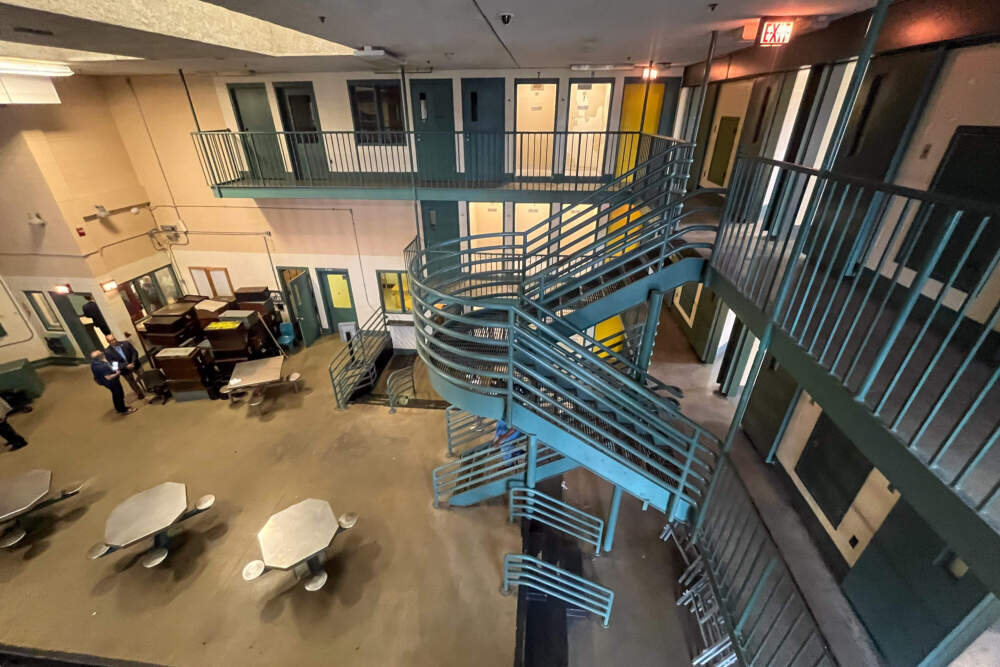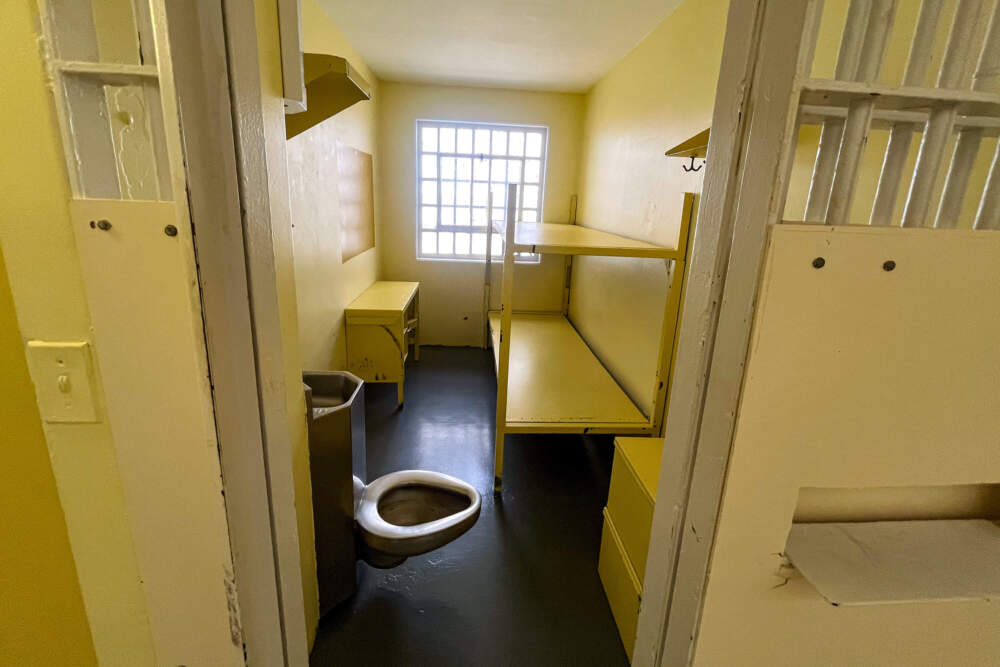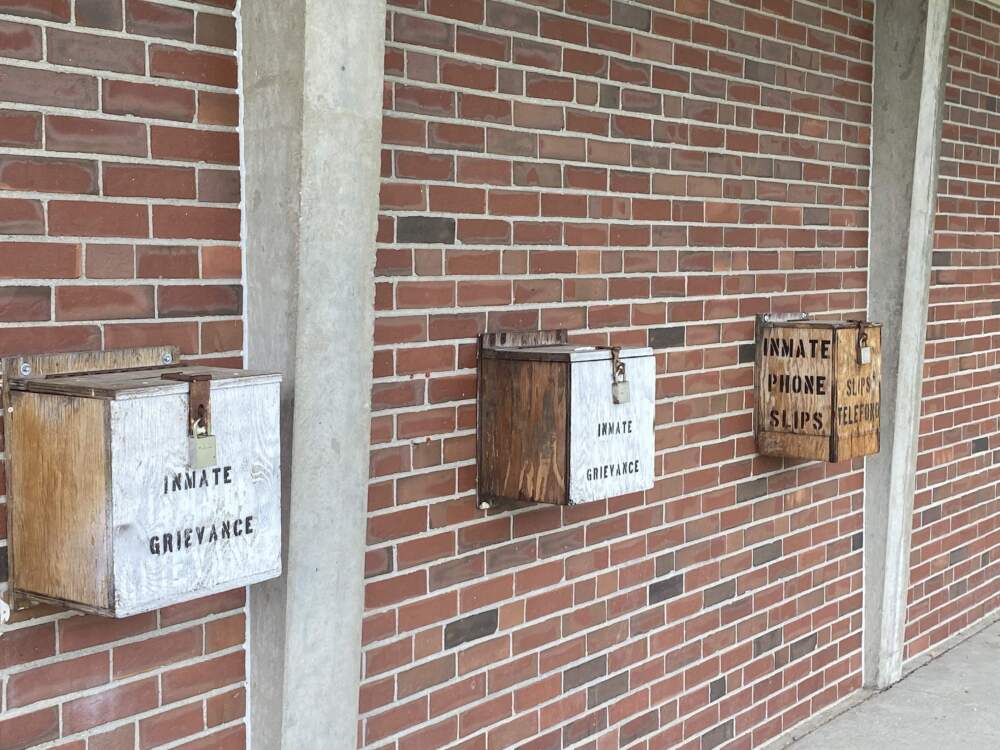For almost 150 years, the state’s oldest men’s prison has occupied about 40 acres of land in Concord. The last prisoners were transferred from MCI-Concord at the end of last month, leaving the state to determine what will take its place in the affluent community west of Boston.
Massachusetts Gov. Maura Healey said the state envisions an “economic development project” that would transform the MCI-Concord site, at least partially, into housing. The state has been grappling with a shortage of affordable units.
“We need housing for ordinary folks here in Massachusetts,” Healey told reporters touring the shuttered prison grounds on Wednesday. “It’s going to save us money and allow us to use state property for something good.”
Shawn Jenkins, interim commissioner of the state Department of Correction, said the MCI-Concord property will not be used as emergency shelter to house migrant families, as was done at the decommissioned Bay State Correctional Center near MCI-Norfolk.

State officials announced they’d close MCI-Concord in January, in part due to a steep drop in the number of people incarcerated over the past decade. The last prisoners left the medium-security prison for men on June 28.
In 2013, more than 11,000 people were held inside state prisons. In 2022, that number shrank to just over 6,000 individuals. MCI-Concord could house up to 900 men, but only 480 prisoners remained when it closed.
“We’re fortunate at the Department of Correction our incarcerated population is way down,” said Jenkins. “That gave us an opportunity to kind of reassess what we’re doing here within the department.”
Jenkins said MCI-Concord’s prisoners and roughly 200 staffers were transferred to other prisons. The closure will save between $15 million to $16 million a year and allows the state to avoid spending close to $190 million on updates to the aging prison. It was built in 1878. He added there are no current plans to close additional state prisons.




An official decommissioning process is underway, with state officials evaluating if items left at the site should be moved to any of the state’s other 14 prisons. When that wraps, Jenkins said state lawmakers will determine the site’s future.
The town of Concord earlier established a MCI-Concord Advisory Board to gather public input and present information to town officials. Concord also asked for state funds to pay for consulting work on transition planning.
During a tour of the prison complex and some of its more than two-dozen buildings, remnants of its long history were evident. Tiny cells about 9 feet by 12 feet contained a metal bunk bed, metal sink and toilet. Across the grounds were overgrown weeds and crumbling barbed wire fencing. There stood aging pay phones, “out of bounds” signs, “inmate grievance” boxes, a risque picture of a woman on a cell mirror and a chapel with dried holy water wells. Air conditioning was absent on the sweltering summer day.
“It was crowded, there was no privacy, and you really had to watch your back because of the violence. Some of the worst prisoners were sent to Concord.”
Former MCI-Concord prisoner Charles Diorio
One of the most famous moments in MCI-Concord’s history was the 1988 visit to the prison by Mother Teresa, a Nobel prize-winning nun who had a pen pal incarcerated there. During a Catholic mass held in the prison gymnasium, Mother Teresa reportedly blessed 500 rosaries for prisoners.
Notable fights and riots are also part of the prison’s bygone days, and researchers reportedly tested psychedelics on prisoners in the ’60s.
“It’s a facility that has a lot of history to it, and it was a difficult decision for us,” Jenkins said. “But at the same time, it’s a facility that was quite costly to maintain.”




Charles Diorio, who was in custody at MCI-Concord for almost two years in 2018, said it was a good move to close the prison.
“It was really terrible,” said Diorio, now incarcerated at the Souza-Baranowski Correctional Center. “It was crowded, there was no privacy, and you really had to watch your back because of the violence. Some of the worst prisoners were sent to Concord.”
State lawmakers are considering a proposed moratorium on new prison construction, which Jenkins said could be a “challenge” if it were to interfere with necessary prison repairs. He said the move to close Concord tracks with what the Department of Correction wants for its future and a shift in focus toward rehabilitation.
“I wouldn’t describe it as a victory lap,” Jenkins said. “But it’s probably emblematic of the trends that we’re seeing, and refocusing what our priorities are and utilizing facilities in ways that we can make things better inside, and staying away from overcrowding, and all those things that were kind of existent years ago.”
This segment aired on July 22, 2024.
This post was originally published on this site be sure to check out more of their content.








